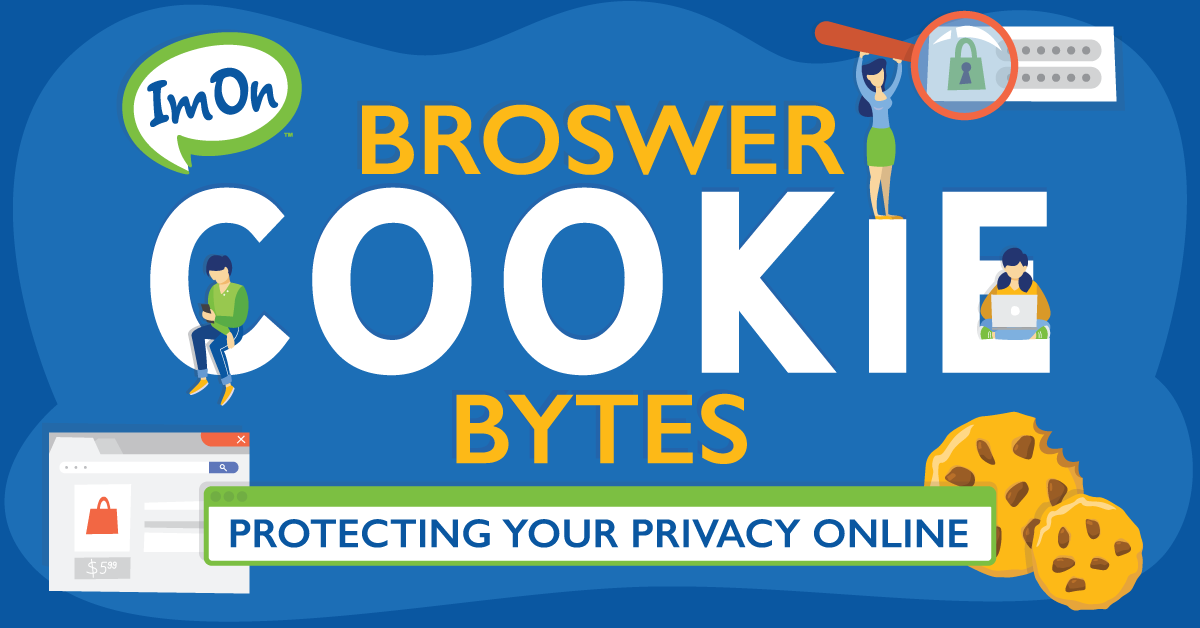
Let’s start simple. What are browser cookies? Internet browser cookies (the less delicious type of cookies) are small files that sites send to and save on your computer/phone/tablet. Most sites use these cookies to remember your device and other information — like what’s in your shopping cart or your login information. Cookies can also be used to track your device across websites, which is how you keep seeing ads for that pair of shoes you looked at online a couple of months ago. Cookies aren’t technically tracking you, instead, when a cookie is created it assigns your device a unique tracking number. This number can be matched up across websites or sessions and piece together your travels across the web.
Cookies can be helpful for a user though— like remembering sites you’ve visited so they load faster, remembering your settings on sites that are personalized, and/or auto-filling your login information. But cookies can also be used to provide sites with information, like your searches, purchases, device information, location, when and where you saw previous ads, how many times you’ve seen an ad, and what links you click on. Understandably, this can make people uncomfortable when they aren’t sure who is using these cookies and for what purpose.
Because of this user anxiety, over the course of the last decade different privacy laws have popped up around the globe regulating cookies. In the last few years these laws have led to “cookie consent” pop-up/banner notices all over the internet. Many users simply click “accept cookies” on these pop-up or banners in order to get back to what they were doing on the site in the first place. It is also possible to simply close these pop-ups. United States laws allow for “implied consent,” meaning that closing the pop-up may still allow a site to save cookies to your device. The laws in the European Union, in comparison, require explicit or opt-in consent, so closing a pop-up without hitting “accept” doesn’t allow a site to save any cookies. Because a person can visit a website from almost any country in the world, most major companies adhere to the stricter EU policies, but there are no guarantees when a user is browsing in the US.
If you’ve seen one of those cookie consent pop-ups, you may have seen one with an “options” button. This allows users to select the type of cookies they will accept. Most sites will explain the options you can choose between, but if you want to learn more about the different types of cookies, click here. Being able to select the type of cookies to accept can empower users to take more control over their privacy, but selecting options for each site visit can be extremely tedious.
So what can you do? First, let’s be clear cookies are often a good thing for users as they unlock options on sites that wouldn’t otherwise be available and they can allow for a personalized internet browsing experience. If you don’t want to go through the hassle of selecting cookie options for each site you visit, you can clear cookies regularly in your browser settings. You can see how to do that for different browsers and different devices below. One issue with not allowing or deleting cookies is that sites you visit regularly will load slower because every aspect of the site will have to be downloaded each time you load a new page.
Inevitably, cookies and online privacy policies will change (sometimes quickly) and the most important thing is that you are an informed user and understand what is accessible to the websites you’re visiting. If you visit a site you’re not sure that you should trust, you can always clear your browser’s cookies following the directions below. There are also cookie blockers built into most browsers that can allow you to select your general preferences so they can be applied to any site you visit and/or notify you if a site wants to save any cookies. Stay safe online and happy browsing!
Instructions for Managing Cookies:

